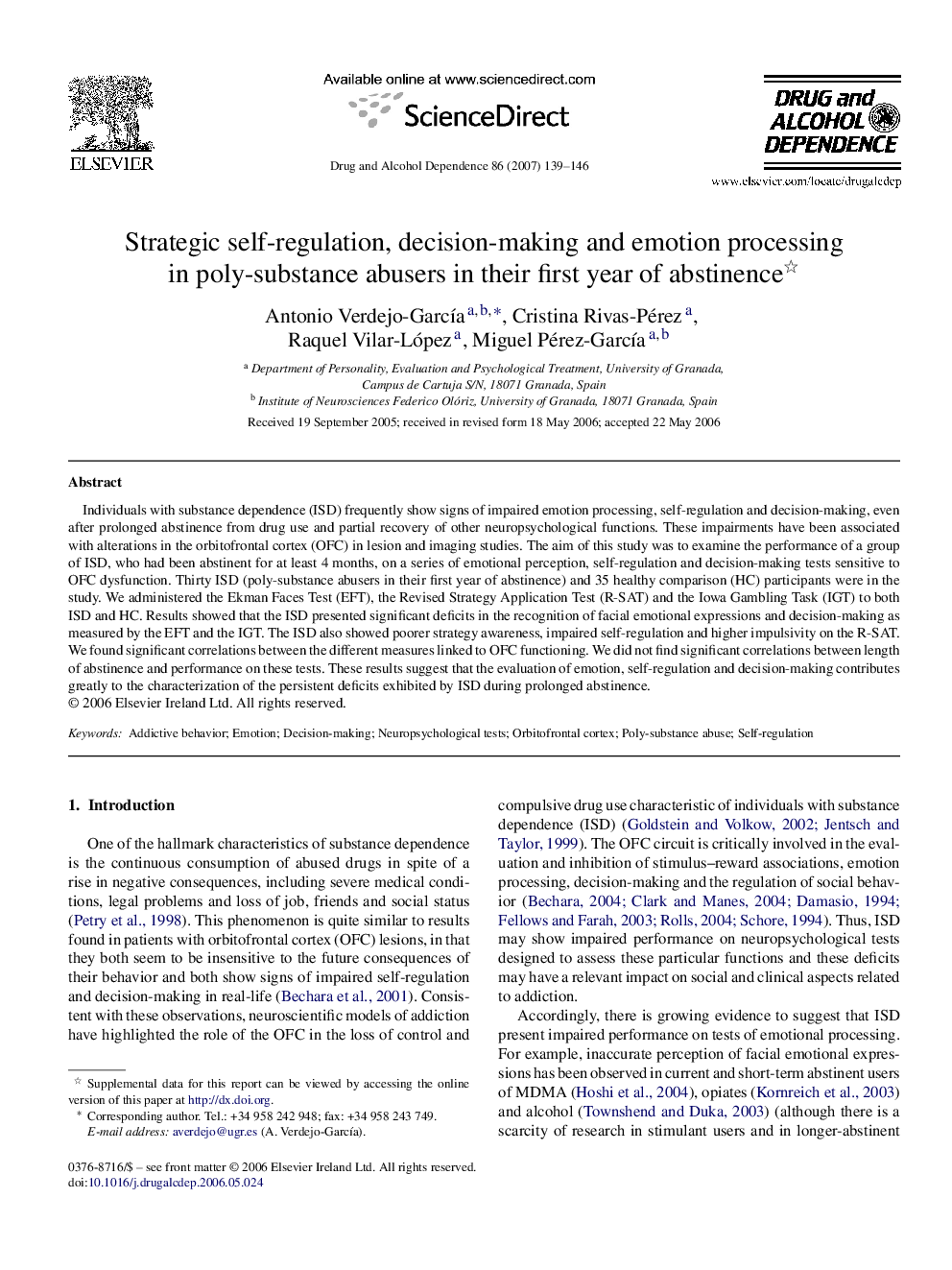| Article ID | Journal | Published Year | Pages | File Type |
|---|---|---|---|---|
| 1071738 | Drug and Alcohol Dependence | 2007 | 8 Pages |
Individuals with substance dependence (ISD) frequently show signs of impaired emotion processing, self-regulation and decision-making, even after prolonged abstinence from drug use and partial recovery of other neuropsychological functions. These impairments have been associated with alterations in the orbitofrontal cortex (OFC) in lesion and imaging studies. The aim of this study was to examine the performance of a group of ISD, who had been abstinent for at least 4 months, on a series of emotional perception, self-regulation and decision-making tests sensitive to OFC dysfunction. Thirty ISD (poly-substance abusers in their first year of abstinence) and 35 healthy comparison (HC) participants were in the study. We administered the Ekman Faces Test (EFT), the Revised Strategy Application Test (R-SAT) and the Iowa Gambling Task (IGT) to both ISD and HC. Results showed that the ISD presented significant deficits in the recognition of facial emotional expressions and decision-making as measured by the EFT and the IGT. The ISD also showed poorer strategy awareness, impaired self-regulation and higher impulsivity on the R-SAT. We found significant correlations between the different measures linked to OFC functioning. We did not find significant correlations between length of abstinence and performance on these tests. These results suggest that the evaluation of emotion, self-regulation and decision-making contributes greatly to the characterization of the persistent deficits exhibited by ISD during prolonged abstinence.
